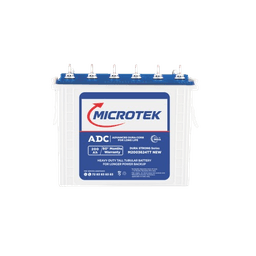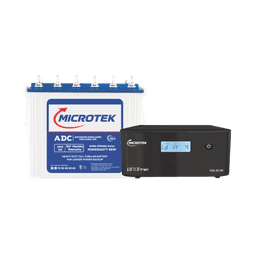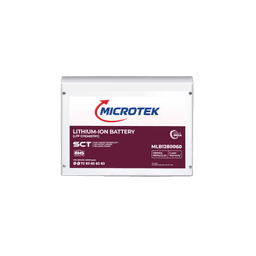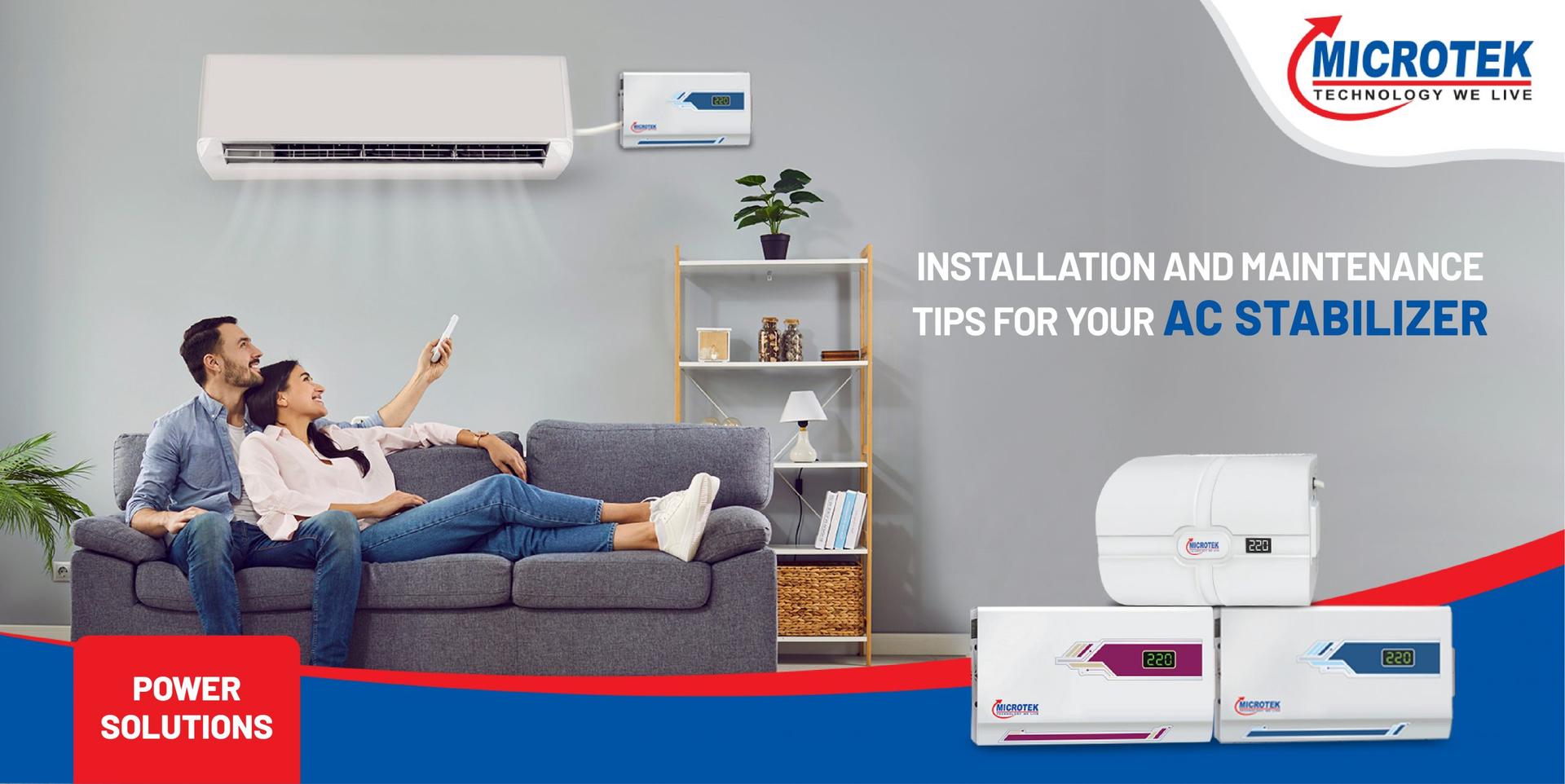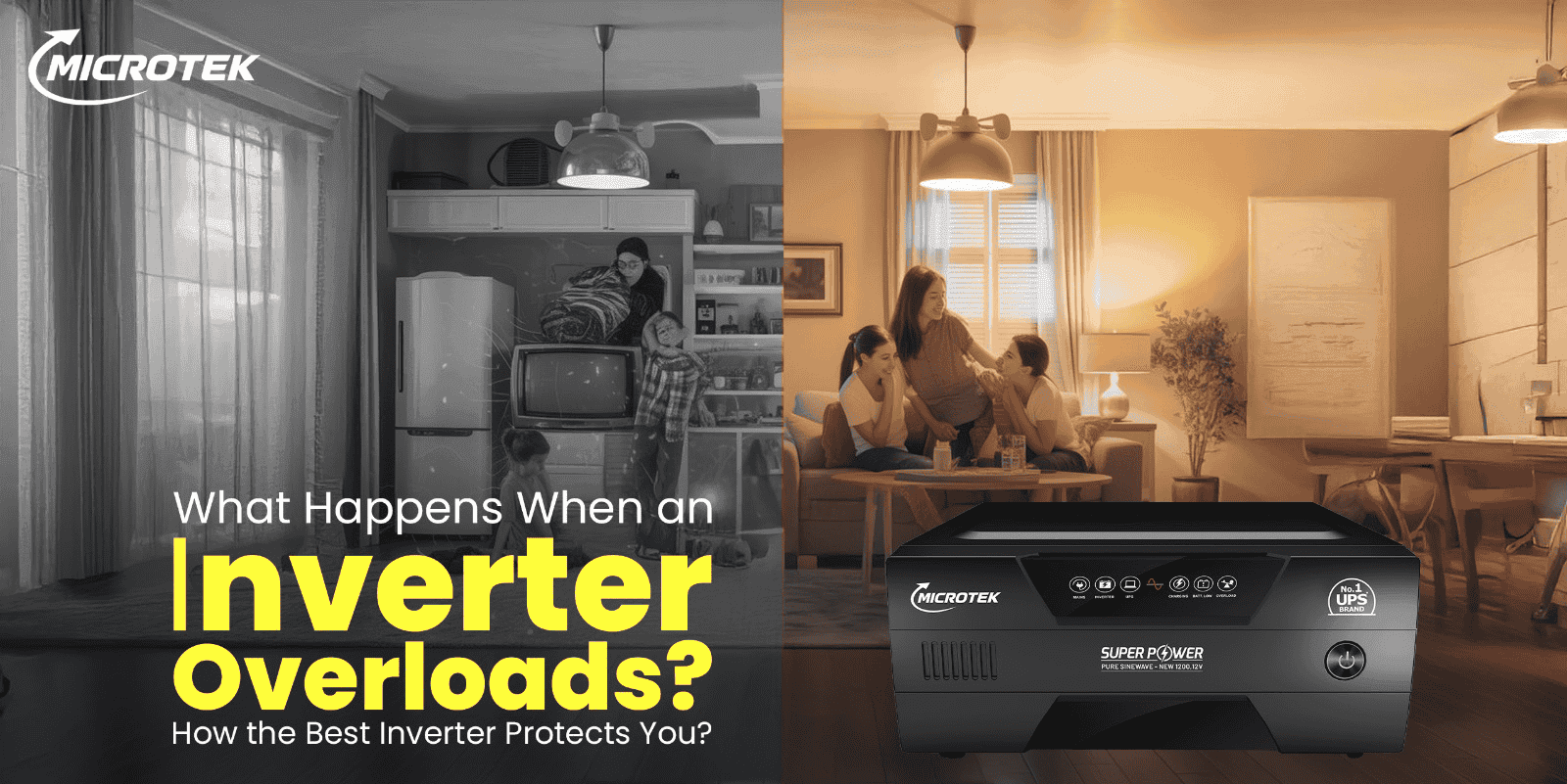
What Happens When an Inverter Overloads? How does the Best Inverter Protect You?
Nowadays, inverters are utilized by most individuals to power homes when there is an electricity blackout. Inverters are handy tools. They transform electricity from a battery and deliver energy to fans, light bulbs, and other domestic appliances. An inverter, however, may sometimes get overloaded. That means the inverter is trying to deliver more power than it can handle.
Here on this blog, we will explain what happens when an inverter is overloaded, why it is unsafe, and how good-quality inverters ensure your family's safety and your home's safety as well.
What Is an Inverter Overload?
There is always a maximum for every inverter. This maximum is also known as the "load capacity". Load refers to the sum of electricity your home appliances require. Suppose you turn on a fan, a light, a refrigerator, and a washing machine simultaneously. All these appliances collectively require some quantity of power. If this entire power is greater than your inverter can supply, then it is an overload.
Suppose you have to lift five heavy bags when you can only lift two. You would get exhausted quite easily. Similarly, when we overload an inverter above its limit, it gets overloaded.
Why Does an Inverter Overload?
There are various reasons an inverter becomes overloaded:
1. Too Many Devices Are Connected
When you switch on many appliances at a time during a blackout, the inverter can manage all of them.
2. Incorrect Inverter Capacity
Some people buy an inverter which is of small capacity even if they have a lot of home appliances. If the inverter is of a smaller size according to your need, it will become overloaded more often.
3. Faulty or Old Appliances
Older appliances like refrigerators or fans take up more power than new appliances. They cause extra pressure on the inverter.
4. Instant Power Demand
Some appliances like mixers or water pumps, take a significant amount of power to be started. Such appliances can overload unexpectedly even if other appliances are operating in a normal way.
What does an overpowered inverter do?
When an inverter is overloaded, lots of things can fail. Here are some common issues:
1. Power Switches Off
Most of the new inverters will automatically turn off if overloaded. It's a protection measure. It saves the inverter from damage. But, this implies your lights and fans will shut down abruptly.
2. Alarm or Red Indicator
Some inverters have a very small red light or alarm which informs you of an overload situation. It helps you act promptly.
3. Inverter Overload
If the overload continues for some time, the inverter will become very hot. It will heat up the machine and even cause a fire under extreme conditions.
4. Battery Damage
Overload makes the battery work harder than it should. This causes it to heat up and lose power faster. If this happens often, the battery gets weak and won’t last long. You may need to buy a new battery sooner than expected. Always use appliances within the inverter’s power limit.
5. Appliance Damage
If the inverter is not able to supply stable power during an overload, it can also damage your household appliances.
How Do You Not Overload Your Inverter?
Prevent overload for the life span of your inverter and appliances. Below are some tips:
1. Know Your Power Needs
Don't get an inverter before you know how many appliances you want to use when there is a power outage. Sum up the power they consume. Then buy an inverter that will be capable of supplying that load.
2. Use Energy Saving Appliances
Choose LED bulbs, energy-saving fans, and inverter-type air conditioners. They use less power.
3. Avoid Using All Appliances at the Same Time
Try to switch off heavy appliances like washing machines and microwaves on inverter mode.
4. Check Battery Health Regularly
A weak battery may put the inverter under added load. Keep the battery in tip-top condition.
How Do Quality Inverters Protect You During Overload?
The best inverters on the market are equipped with smartness. These save you, your home, and your appliances from an overload. Let's understand how:
1. Auto Overload Protection
Inverters today come with an auto shut-off feature. If the load becomes too much, the inverter shuts down automatically to prevent any damage.
2. Alerts and Alarms
Good quality inverters give warning sounds or lights when overloaded. Some even show error messages on a digital display.
3. Reset Option
Some inverters also allow you to reset them after an overload by just turning them off and on again. That is handy.
4. Smart Load Sensing
Some advanced inverters can detect whether an appliance is consuming excessive power. They cut down the supply for the system's protection.
5. Strong Build Quality
High-quality inverters are constructed from superior materials. They endure stress well and survive longer.
6. Better Battery Charging System
A smart inverter does not overcharge or let the battery fall very low. This guards against overcharging and prevents overload during low power conditions.
Why It Matters to Choose the Right Inverter
Choosing the right inverter matters greatly, so that you can use the right security features for your home. It can also prematurely fail or damage your appliances. It is for this reason that it is extremely essential to purchase a safety-tested and quality-checked branded inverter.
A quality inverter not only supply power but also safeguards your house from damage such as overheating, battery destruction or short circuits. In the long run this cuts your expenses.
Conclusion
It is dangerous to overwork an inverter. It may shut down your power source, burn out your battery, damage your appliances, or cause safety issues. But if you use your inverter properly and buy a good brand, then you will not experience any of these issues.
That is why it is always better to use a well-known brand like Microtek. With smart overload protection, superior safety features, and robust build, Microtek inverters enable you to have carefree smooth power.
- Copy :


